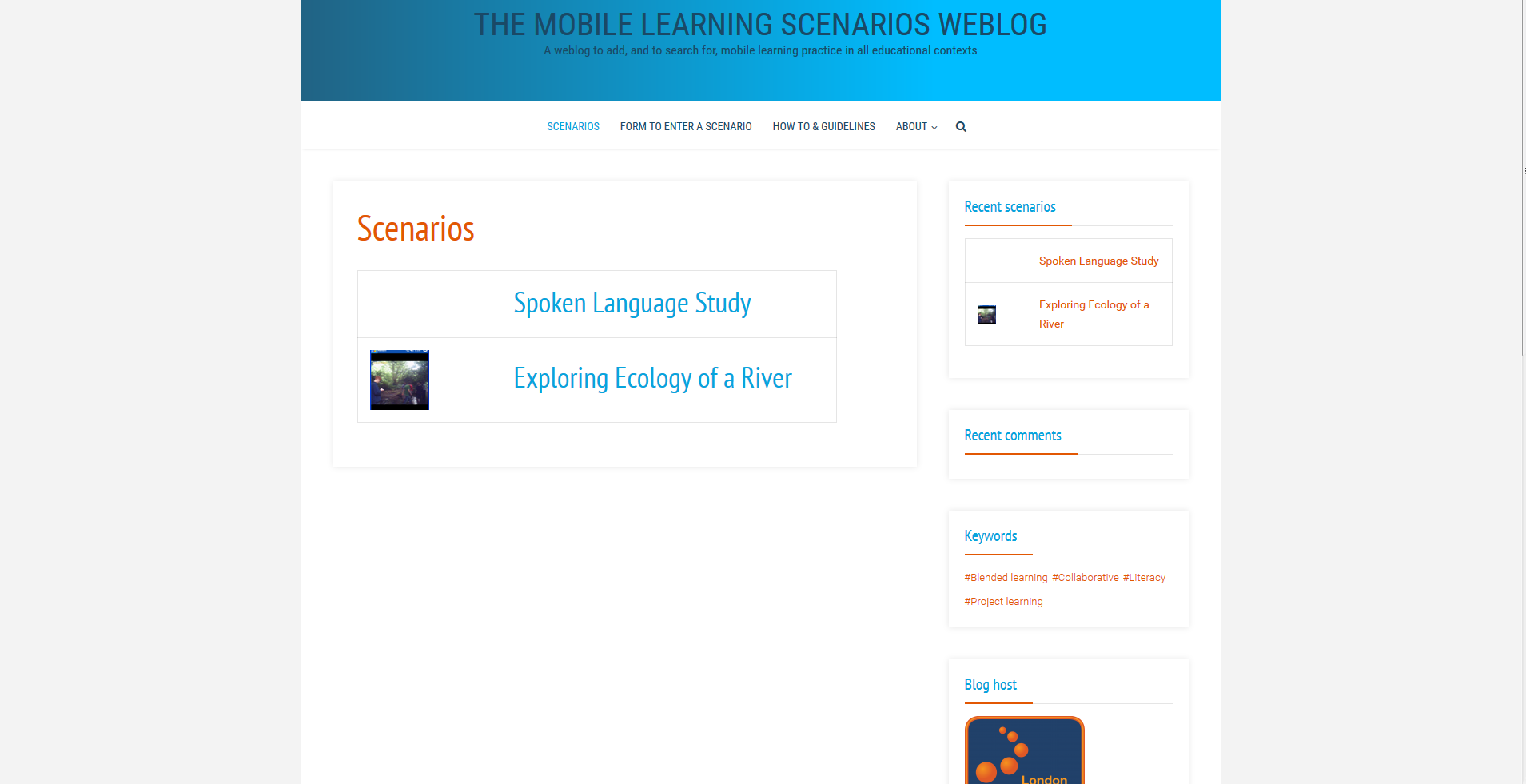This week, we launched our “Mobile Learning Scenarios Weblog” (hosted by the LMLG, and part of the “Network for Mobile Learning Scenarios”). People interested in letting teachers, researchers and policy makers know about their mobile learning practice in formal and informal learning contexts are invited to submit their scenarios. Please spread the word!
As the page is quite new and we just started to submit content, the number of scenarios is still low. However, we hope to get submissions soon and will be able to provide a rich resource for people interested in mobile learning practice.
For practitioners who want to realise mobile learning, but need a bit support are invited to use our template for planning and evaluating mobile learning scenarios. It is available in English and German language.
Interested in the aims of the Scenarios Weblog? This is what I copied from the page:
“The Network for Mobile Learning Scenarios, which is a sub-network of The London Mobile Learning Group (LMLG; www.londonmobilelearning.net), offers this page aiming to provide a rich resource of mobile learning practice for teachers, researchers, and policy makers.
For the Network, mobile learning is centred on the use of handheld technologies, such as Smartphones, iPods, tablet computers and the functions or apps utilized on these devices to augment and enhance learning objectives and activities. Mobile learning is, especially, the use of these devices beyond the classroom taking learning into the wider landscape, engaging with cultural and social institutions, field studies, networks or experts, as well as considering mobile technologies as part of users’ lifestyle choices and for media consumption, different social contexts and milieus in which people are learning, and the different demands of educational institutions and their policies.
The aim of the ‘Network for Mobile Learning Scenarios’ is to provide perspectives for the implementation of mobile technologies in teaching and learning contexts, be they formal or informal, during school or leisure, at work or at university, by providing ‘scenarios’ for learning and teaching. In contrast to large-scale projects scenarios can be understood as modular units which are replicable, scalable and transferable and apply to the use in specific learning situations. Part of the Networks’s work is the Mobile Learning Scenarios blog that was created to publish examples of mobile learning in current educational practice. It was designed by a pan-European collective of academic researchers wishing to disseminate these examples (scenarios) as both support for teachers and institutions in varying educational contexts and levels and to stimulate further research. The Network embraces the opportunity and potential of mobile technology as the basis of a Community of Practice. As such, we encourage open participation. A strong community learns together by virtue of its activity, so we welcome submissions from practitioners to showcase their use of mobile technologies to enable understanding of the significant experiences, and affordances, of mobile learning. Submissions to the blog facilitate the opportunity to share projects from international practitioners at all levels. This in turn helps to generate feedback, debate and stimulates further research into the paradigms that these dynamic technologies represent.”
